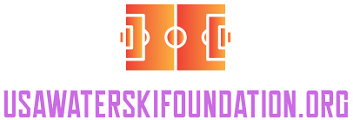In our fast-paced world, it’s all too easy to fall into the trap of recency bias, where the latest events disproportionately influence our decisions and perceptions. Recent experiences can overshadow the wealth of knowledge and insights we’ve accumulated over time, leading us to overvalue the latest trends, opinions, and outcomes while undervaluing the broader context.
In this article, we aim to unravel this cognitive bias and provide nine practical tips to help maintain a balanced perspective.
By understanding how recency bias impacts our thinking, we can make more informed decisions that reflect a comprehensive view rather than being swayed by the most recent information.
Together, we’ll explore strategies that encourage us to:
- Take a step back.
- Consider the bigger picture.
- Make choices rooted in a well-rounded understanding of the world around us.
Pause and Reflect
Let’s take a moment to pause and reflect before making hasty decisions that might be influenced by recent events. We often find ourselves caught up in the whirlwind of current happenings, which can lead to recency bias.
By slowing down and practicing mindfulness, we can better navigate these situations with clarity and intention.
In our fast-paced world, it’s easy to overlook the importance of critical thinking. When we’re mindful, we create space to truly assess a situation, allowing us to distinguish between what’s immediate and what’s truly significant.
This deliberate pause helps us to see beyond the noise, fostering a deeper connection with our community and shared values.
As we cultivate this habit of reflection, we strengthen our ability to make informed decisions that align with our collective goals. Together, we can resist the pull of recency bias and embrace a thoughtful approach to decision-making.
By doing so, we not only enrich our lives but also support each other in creating a more understanding and cohesive community.
Seek Diverse Perspectives
Opening ourselves to a variety of viewpoints broadens our understanding and helps us counteract the influence of recency bias. By actively seeking diverse perspectives, we strengthen our critical thinking skills, allowing us to see beyond the immediate and the familiar.
This inclusivity fosters a sense of belonging, as we acknowledge and appreciate the richness of different experiences and ideas. When we listen to others’ insights, we begin to question our assumptions and challenge the influence of recent events on our thinking.
Let’s practice mindfulness by engaging with people from different backgrounds, cultures, and disciplines. This conscious effort ensures that we don’t become trapped in our echo chambers, where recency bias can thrive unchecked. By discussing issues with a diverse group, we expose ourselves to a broader spectrum of information and perspectives, helping us make more balanced decisions.
Together, we can build a community that values varied viewpoints, enhancing our collective wisdom and reducing the grip of recency bias on our minds.
Embrace Historical Context
Understanding the historical context allows us to place current events in perspective and recognize patterns that shape our present and future. When we embrace history, we build a shared foundation that connects us all, fostering a sense of belonging.
By acknowledging past events, we can see beyond the immediate, avoiding recency bias and its misleading simplicity. History offers us a broader canvas, enabling us to weave our narratives with depth and clarity.
Let’s remember, it’s not just about facts and dates. Historical context encourages critical thinking and mindfulness, helping us question why things are the way they are. By reflecting on the past, we sharpen our ability to make informed decisions, avoiding knee-jerk reactions that often arise from recency bias.
As we engage with history, we strengthen our collective wisdom. We become more resilient and inclusive in our interpretations, appreciating the complexities of the past while navigating the intricacies of the present.
Together, we can create a more informed and connected future.
Engage in Critical Thinking
To truly understand the world around us, we must actively question assumptions and seek diverse perspectives. When we engage in critical thinking, we create a space where our community thrives on curiosity and shared wisdom.
We can counteract recency bias by embracing mindfulness and examining the broader context of the information we encounter.
In our fast-paced world, it’s easy to get caught up in the latest trends or headlines. However, by pausing to think critically, we allow ourselves and each other to explore deeper truths.
Let’s engage in the following practices:
- Ask questions and consider different angles before forming conclusions.
- Strengthen our understanding by connecting through meaningful dialogue.
Together, we can cultivate an environment that values thoughtful reflection. By doing so, we help each other see beyond the immediate and appreciate the richness of diverse insights.
This collective effort encourages us all to become more informed and connected members of our shared world.
Challenge Assumptions Regularly
Questioning Beliefs and Assumptions
We often need to question our own beliefs and assumptions to uncover deeper truths. By doing this, we create a space where we can connect more authentically with each other. Challenging assumptions is a shared journey that strengthens our community and enhances our understanding.
Addressing Recency Bias
Recency bias can cloud our judgment, making recent events seem more significant than they are. To counteract this, let’s engage in critical thinking and actively question why we hold certain beliefs.
- Are they based on recent experiences, or do they have deeper roots?
Cultivating a Culture of Mindfulness
When we regularly challenge our assumptions, we cultivate a culture of mindfulness. This practice helps us remain open-minded and avoid the pitfalls of recency bias.
Together, we can foster an environment where everyone feels heard and valued. As we question and learn, we grow closer, building trust and understanding.
Commitment to Open Examination
Let’s commit to examining our beliefs with curiosity and openness, ensuring our decisions are well-rounded and inclusive.
Practice Mindfulness in Decision-Making
In our decision-making processes, let’s intentionally pause and reflect to ensure our choices are thoughtful and informed.
When we practice mindfulness, we create space to engage in critical thinking, diminishing the impact of recency bias. Together, we can strengthen our community by making decisions that are well-considered and inclusive, rather than impulsive or swayed by recent events.
Mindfulness invites us to be fully present, helping us recognize when recency bias might creep in. By focusing on the broader context, we can see beyond the latest information and consider the full picture.
This approach fosters a sense of connection and understanding among us, as we learn to appreciate diverse perspectives and experiences.
As we incorporate mindfulness into our decision-making, we build trust within our group, knowing that our choices reflect collective wisdom rather than fleeting trends.
Let’s commit to cultivating mindfulness and critical thinking by:
- Ensuring our decisions are grounded in a comprehensive view.
- Focusing on shared goals and values.
- Embracing diverse perspectives for more inclusive outcomes.
Ultimately, these practices will benefit our community and strengthen our collective efforts.
Keep a Decision Log
Enhancing Decision-Making with a Decision Log
Let’s enhance our decision-making by keeping a detailed log of our choices and the reasoning behind them. By doing this, we create a space for reflection that can help us identify patterns in our thinking and behaviors.
Benefits of a Decision Log
- Logging our decisions allows us to step back and consider whether recency bias might be influencing us.
- It’s a way to practice mindfulness, ensuring we’re fully aware of the factors influencing our choices at the moment.
Community Values and Collective Growth
In our community, we value critical thinking and shared growth. By maintaining a decision log, we:
- Refine our individual thought processes.
- Contribute to a collective understanding of better decision-making practices.
Review and Learning
When we document our decisions, we can:
- Review them later to see if our initial reasoning held up over time.
- Learn from past experiences.
- Align with our shared values.
- Support each other in making more informed choices.
Conclusion
Together, let’s embrace this tool to foster better decision-making and strengthen our community bonds.
Cultivate a Growth Mindset
Let’s embrace the power of a growth mindset to constantly improve and adapt in our decision-making journey. By committing to lifelong learning, we can mitigate recency bias and make more balanced judgments.
When we cultivate a growth mindset, we’re open to new perspectives and challenges, enhancing our critical thinking skills. This mindset encourages us to view setbacks as learning opportunities, rather than obstacles that define us.
Together, we can create a community where curiosity and openness are our guiding principles.
By practicing mindfulness, we can become more aware of our thought patterns and biases, allowing us to see beyond the most recent information or experiences. Mindfulness helps us pause and reflect, rather than reacting impulsively based on the latest events.
Adopting a growth mindset allows us to:
- Question our assumptions
- Embrace diverse viewpoints
By doing so, we strengthen our decision-making processes, fostering an environment where everyone feels valued and empowered to contribute.
Let’s grow together!
What is recency bias and how does it impact decision-making?
Recency Bias is when we give more weight to recent events over past ones, skewing our decisions. This bias can lead to:
- Overlooking important information
- Making hasty judgments based on what’s most recent in our minds
Impact on Decision-Making:
-
Clouded Judgment: Recent events may overshadow past data or experiences, leading to poor decisions.
-
Ignoring the Bigger Picture: Focusing only on recent information can prevent a comprehensive understanding of the situation.
Importance of Awareness:
Being aware of recency bias is crucial for:
- Making well-rounded choices
- Considering all relevant factors
This awareness ultimately leads to better outcomes.
How can technology influence recency bias in today’s fast-paced world?
In today’s fast-paced world, technology plays a vital role in influencing recency bias. With instant access to a wealth of information, we often rely on the most recent data when making decisions.
This can lead to overlooking valuable historical trends or insights. By being aware of how technology impacts our decision-making process, we can take steps to ensure a more balanced approach.
Consider both recent and past information for more well-rounded conclusions by:
- Evaluating Historical Data: Regularly review past trends and data to provide context to recent information.
- Setting Alerts: Use technology to set reminders to revisit older data periodically.
- Diversifying Information Sources: Access a variety of information sources to gain different perspectives.
- Critical Thinking: Practice questioning the relevance and accuracy of new information in the context of historical data.
By implementing these strategies, we can mitigate the effects of recency bias and make more informed decisions.
Are there specific industries or fields where recency bias is more prevalent?
In some industries, recency bias can be more prevalent due to the fast-paced nature of the work. It’s common to see this bias in sectors like:
- Finance
- Marketing
- Media
In these areas, trends and data change rapidly. Our team has observed how easily we can get caught up in the newest information, overlooking valuable insights from the past.
It’s crucial for us to stay mindful of this tendency and strive for a balanced perspective.
Conclusion
Remember, avoiding recency bias is a continuous effort. By implementing these practical tips in your decision-making process, you can develop a more balanced and informed perspective.
Key Strategies:
-
Pause and Reflect:
- Take the time to pause and reflect before making decisions.
- Challenge your assumptions to ensure they are not influenced by recent events alone.
-
Seek Diverse Perspectives:
- Stay open to diverse perspectives to broaden your understanding.
- Embrace historical context to gain insights beyond immediate occurrences.
-
Cultivate a Growth Mindset:
- Continuously learn and adapt to navigate through biases effectively.
- Practice these strategies consistently to make sound decisions in the long run.
By taking these steps, you can enhance your ability to make better choices based on a comprehensive understanding of the situation.

